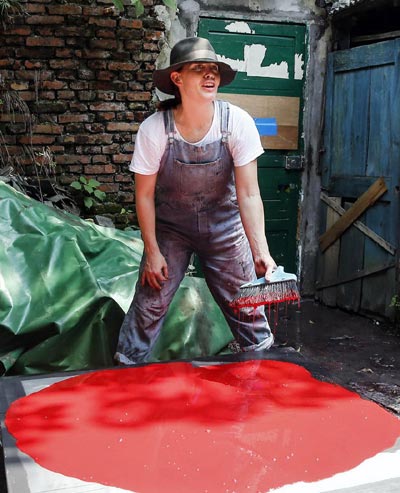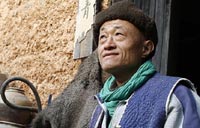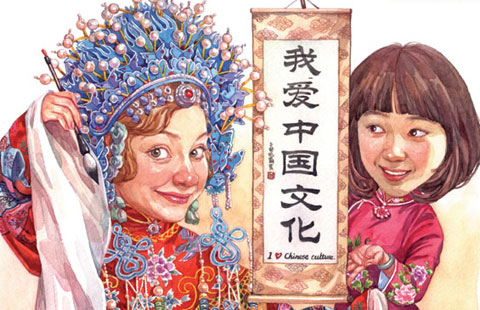Foreigners flock to China's 'porcelain capital'
By Peng Yining and Hu Kaiyong (China Daily) Updated: 2014-06-25 07:09
 |
|
China De La Vega, an Australian potter and painter, enjoys life and work in Jingdezhen. Zhang Hao / China Daily |
 |
| "Porcelain capital" showcases ancient skills |
 |
| Preserving the ancient traditions |
As one of very few institutes in China devoted to ceramics, the school is attracting an increasing number of international students, according to Hu. "Many artists and pottery lovers come here because of Jingdezhen's fame. Some of them apply to teach English in our school, and in return we let them join our ceramic classes," he said, adding that although the city's fame rests on its ancient porcelain arts, modern ceramics are not ignored.
Oldest and best
Tran Suc Linh, a 24-year-old sophomore from Vietnam, is studying chemistry and ceramic materials in Jingdezhen. "In Vietnam, we only have about a dozen glazes, but in Jingdezhen, I have discovered hundreds of them," said Linh, whose family owns a ceramics factory. "Everyone in this industry knows that Jingdezhen's porcelain is not only the oldest, but also the best. You can find every material, skill and piece of equipment this business requires in this city."
According to Li Jianshen, Sanbao's founder and an acclaimed ceramic artist in his own right, as a global commodity, porcelain is international and universal. People can understand its beauty despite the language barrier and cultural differences, and that's why porcelain and Jingdezhen attract so many people from outside China.
He said people have an instinctive impulse to play with mud and to make things. They don't have to understand Chinese to understand Chinese porcelain.
"Jingdezhen was the place where the most brilliant potters were found, and they developed an instinct into an art," he said. "It's like when people love classical music, they visit Europe. But if you make porcelain, you come to Jingdezhen."
- Mediators can end labor wrangles
- 6 students punished for cheating
- Top political adviser urges Japan to tackle tension
- Auditors uncover good, bad and ugly in govt spending
- Netizens sound off about officials' neglect of duty
- Hospital attack leaves one dead, another injured
- Revision to law targets makers of baby formula
- Premier Li's charisma wins
over British press - Cities along grand canal eye
new preservation - Guinness record for plank set in Beijing







